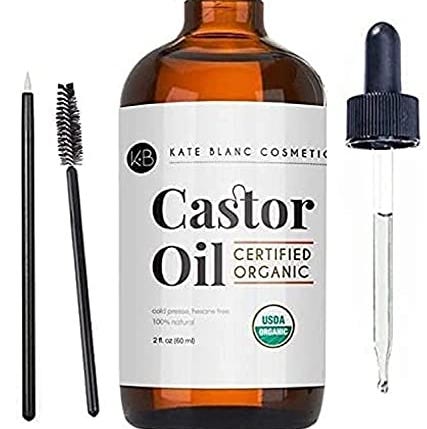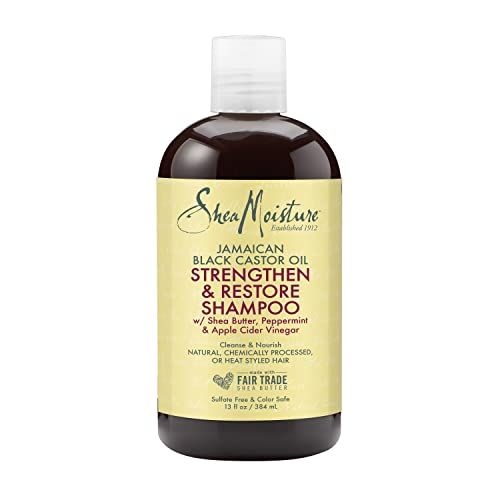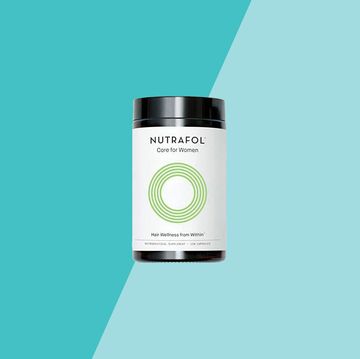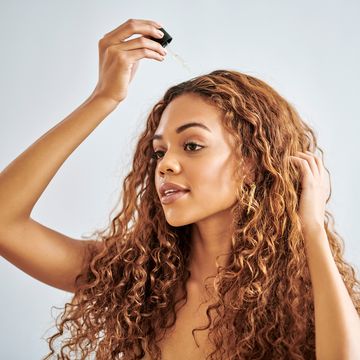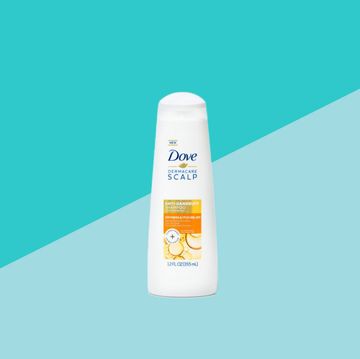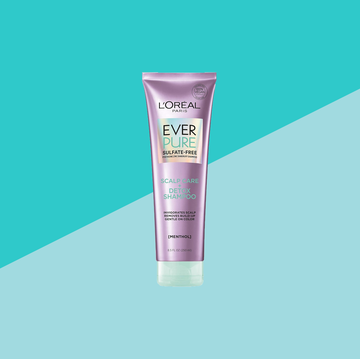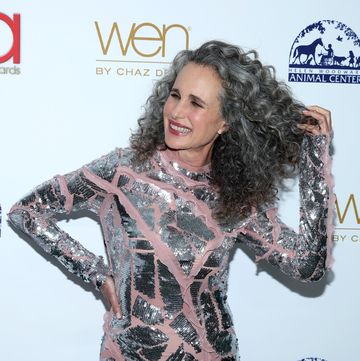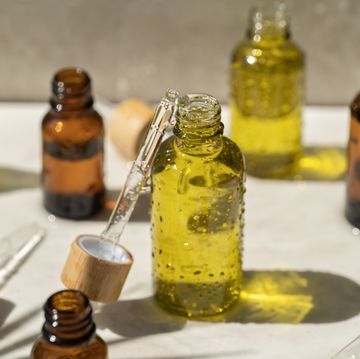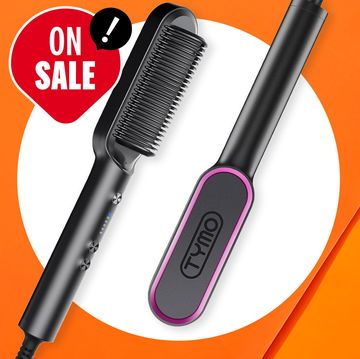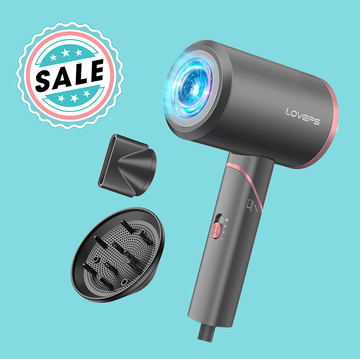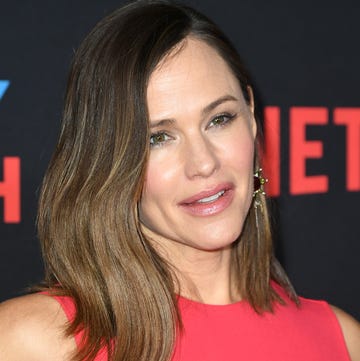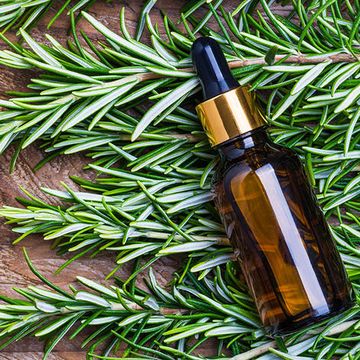Jump to:
- Benefits of castor oil for hair
- Castor oil for hair growth—does it work?
- How to use castor oil for hair
- How long should you leave castor oil in hair?
- Can you use castor oil on eyelashes and eyebrows?
- What are the side effects of using castor oil for hair?
- Should anyone avoid castor oil for hair?
- Is coconut oil or castor oil better for hair?
Castor oil for hair has been around for a long time—and many claim that the pale yellow oil derived from castor beans boasts a slew of benefits for your tresses.
Pros like Chaz Dean, founder of WEN and celebrity hairstylist and colorist, tout the benefits of the ingredient. “Castor oil used to be a guarded secret to help hair growth and I got on the train a long time ago when creating my brand. Now it’s well known and trending because it truly does work miracles!” he says.
From helping hair grow to increasing its density, it seems there’s nothing castor oil can’t do, but what does the science say? We tapped industry experts to get to the root of it all.
Meet the experts: Janiene Luke, M.D., a board-certified dermatologist in Loma Linda, CA; Michele Green, M.D., board-certified dermatologist; Sophia Emmanuel, I.A.T. certified trichologist and hairstylist; and Chaz Dean, founder of WEN and celebrity hairstylist and colorist
Ahead, find out if castor oil for hair growth is legit, the oil’s benefits, potential side effects, and more.
Benefits of castor oil for hair
Castor oil’s claim to fame may be anecdotal evidence of hair growth, but there are plenty of other reasons to add this oil to your hair care routine. Janiene Luke, M.D., board-certified dermatologist in Loma Linda, CA; Michele Green, M.D., board-certified dermatologist; and Sophia Emmanuel, I.A.T. certified trichologist and hairstylist, tout the oil’s moisturizing and nourishing properties.
“Castor oil tends to have a moisturizing and nourishing effect on the hair, so typically those with dry, brittle, or curly hair may benefit most from use,” Dr. Luke says.
More benefits of castor oil for hair, per the experts, may include:
- Can help to moisturize dry scalp and hair
- Stimulates circulation, allowing oxygen and nutrients to be delivered to the hair follicles
- Can add shine to hair
- Antioxidant properties help to protect the scalp and hair from free radicals and oxidative stress caused by UV rays and environmental toxins such as pollution
Castor oil for hair growth—does it work?
Unfortunately, there are no clinical studies looking at the role of castor oil in hair growth, Dr. Luke says. “However, castor oil is composed of several fatty acids, one being ricinoleic acid, which has been shown to have antioxidant properties,” she says. “Additionally, it has a similar chemical structure to prostaglandins and can inhibit prostaglandin D2. Prostaglandin D2 is thought to help modulate the hair growth cycle and plays a role in alopecia. This may explain why some people note improvement or hair growth after using castor oil.”
Dr. Green also notes that castor oil may boost hair health. “Castor oil has anti-inflammatory properties and has been shown to improve circulation and stimulate hair follicles. Improving circulation allows oxygen and nutrients to be delivered to the hair follicles to maintain scalp and hair health,” she explains.
Hair loss is a very complex condition that can be caused by a myriad of things. If you are dealing with hair loss, we recommend making an appointment with a board-certified dermatologist who specializes in hair loss and scalp conditions. A dermatologist will help to diagnose the cause of your hair loss and come up with a treatment plan to help restore your tresses.
How to use castor oil for hair
Whether you’re looking to use the oil for its moisturizing properties or want to challenge growth claims for yourself, there are plenty of ways to incorporate castor oil into your hair care routine. The oil is best used by those with a “dry scalp and brittle, frizzy hair,” Dr. Green says.
“Castor oil works well as a moisturizing agent when found as an ingredient in conditioners and shampoos. It helps to soften and hydrate the hair and skin when it is an ingredient in your cosmetics,” Emmanuel says.
If you’re looking to add pure castor oil to your hair care routine, Dr. Green suggests using it as a pre-shampoo treatment. But because castor oil is so thick, Dr. Green suggests diluting the castor oil with a carrier oil such as coconut or jojoba oil. You can also swap your regular shampoo for a clarifying formula, to ensure you thoroughly wash the castor oil from your scalp and strands.
How long should you leave castor oil in hair?
It depends, says Dr. Luke, on which product and what you are trying to achieve. “But if using the pure oil, you can massage it into the scalp for five to 10 minutes. If using as a pre [shampoo], you can apply to the hair to coat the strands, leave it on for 15 to 20 min then shampoo.” But, if you’re opting for a deep conditioner, Dr. Luke recommends sticking to the product’s instructions. “And leave-in or styling products formulated with castor oil just need to be washed during your regular shampooing routine,” she says.
Can you use castor oil on eyelashes and eyebrows?
The claims that castor oil can help your hair grow don’t just stop at the follicles on your head. Many people credit castor oil for helping them grow long and thick eyelashes and eyebrows—but is castor oil safe to use on other areas of the body? Much like the claims that castor oil can help to grow the hair on your head, the evidence that it can enhance your eyebrows and eyelashes is purely anecdotal.
If you’d like to add castor oil to your grooming routine, Emmanuel recommends looking for eyebrow and eyelash products formulated with castor oil, rather than applying castor oil directly to the areas.
“If castor oil is an ingredient in a cosmetic, it is okay to use it. I don’t recommend using castor oil on the body, eyebrows, or eyelashes because it is too heavy,” she says.
If you’re considering applying pure castor oil to your eyebrows and eyelashes, Dr. Green advises using caution when applying it to delicate areas such as your eyes. If you’re set on using the oil in any of these areas, a cotton swab is an easy way to control the amount.
“Castor oil can cause eye irritation if it gets into the eyes,” she explains.
What are the side effects of using castor oil for hair?
Before you take the leap and add castor oil to your hair care routine, it’s important to be aware of any possible side effects.
Both Dr. Green and Emmanuel agree that less is more when it comes to using the oil. Because it’s so thick, it can clog pores, cause build-up, and even lead to scalp irritation.
If adding castor oil to the mix, be sure to keep an eye out for these possible side effects:
- Can cause build-up on the scalp and strands
- May clog pores
- May cause dandruff and itching
- Can be difficult to remove from your scalp and strands
- Can cause scalp irritation
Should anyone avoid castor oil for hair?
Those with fine or greasy hair may find that castor oil leaves their strands greasy and weighed down, note Dr. Luke and Dean. In these cases, it may be best to avoid products that contain the oil, and instead opt for a clarifying shampoo for those with an oily scalp.
Is coconut oil or castor oil better for hair?
“They both have different functions,” explains Dean. “Coconut oil is great for hydration and shine, while Castor Oil is great for promoting healthy hair growth. I love both of them for hair and scalp health.”
Jelani Addams Rosa is a New York City-based freelance writer and editor. Her writing has appeared in various digital publications including Seventeen, Cosmopolitan, and Popsugar and she has worked with global brands, like L’Oréal, Carol’s Daughter, CeraVe, and Hair.com. Jelani is passionate about championing diversity through editorial, social, and branded initiatives
Emily Goldman is the deputy editor at Prevention. She’s spent her career editing and writing about health, wellness, beauty, fashion, and food for Martha Stewart Living, Martha Stewart Weddings, Bridal Guide, Good Housekeeping, and more. She’s loved all things health and wellness since starting her bi-weekly podcast Pancreas Pals—a series all about the highs and lows of living life with type 1 diabetes. When not podcasting, she spends most of her time curled up with a good book or watching a period piece on BBC.

